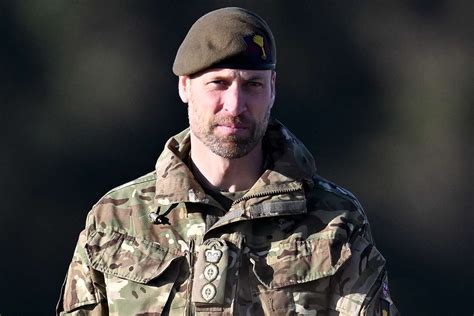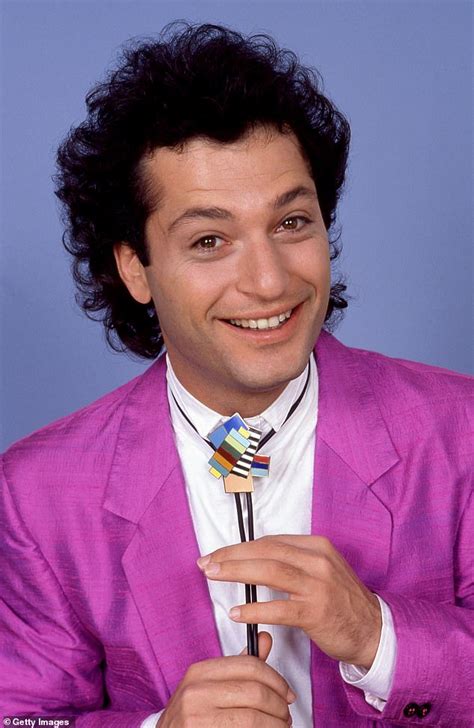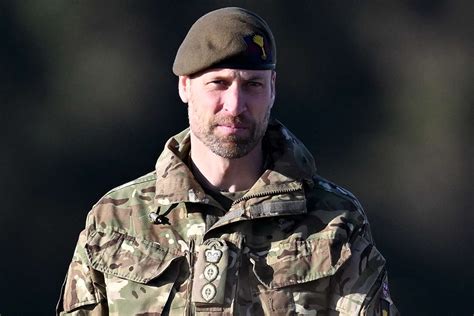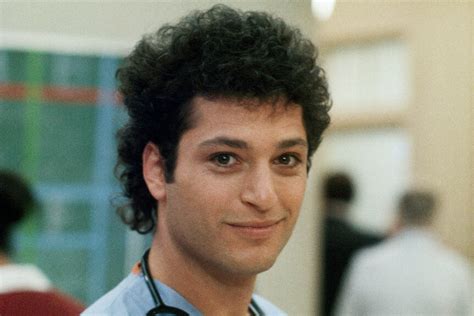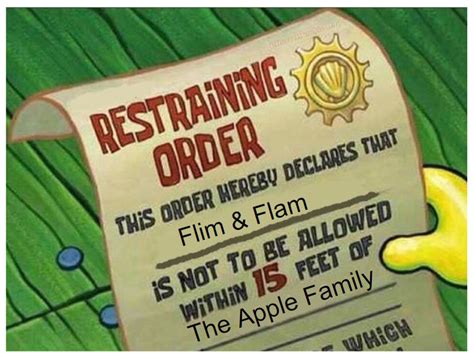
“The View” Executive Producer Brian Teta abruptly halted a live broadcast, leading to speculation about potential legal action following an on-air revelation involving co-host Alyssa Farah Griffin. The incident occurred during a segment discussing Donald Trump’s legal battles, when Griffin disclosed private conversations she had with Trump post-January 6th, prompting Teta’s intervention, and sparking intense discussions about ethics, legal boundaries, and workplace dynamics.
NEW YORK – Tensions escalated on ABC’s “The View” this week after Executive Producer Brian Teta intervened during a live broadcast, moments after co-host Alyssa Farah Griffin made what some perceived as a legally compromising on-air admission. The incident occurred during a segment dissecting the ongoing legal challenges faced by former President Donald Trump. While discussing Trump’s alleged attempts to overturn the 2020 election, Griffin disclosed private conversations she had with Trump following the January 6th Capitol attack. The abrupt interruption by Teta has fueled speculation about potential legal repercussions and internal conflict within the show’s production team, raising questions about ethical boundaries, professional responsibility, and the fine line between public commentary and private disclosure.
During the segment, Griffin recounted details of discussions she had with Trump after his presidency, specifically focusing on his mindset and reactions to the unfolding legal investigations. “I had conversations with him after he left office where he would still say things like, ‘I actually won,'” Griffin stated on air. She further elaborated on Trump’s apparent denial of the election results and his continued insistence on his victory. This revelation seemingly prompted Teta to immediately cut off the discussion, leading to an awkward transition to a commercial break.
The unexpected interruption sparked immediate reaction both on set and online. Viewers took to social media to express their confusion and curiosity, questioning the reasons behind Teta’s decision to halt the conversation. Insiders familiar with the situation suggest that Teta’s intervention stemmed from concerns that Griffin’s disclosures could potentially expose her to legal scrutiny, particularly given the ongoing investigations into Trump’s actions surrounding the 2020 election and the January 6th events.
Legal experts have weighed in on the matter, highlighting the potential implications of Griffin’s statements. Attorneys specializing in defamation and obstruction of justice cases suggest that her recollections could be subpoenaed as evidence in future legal proceedings involving Trump. The sensitive nature of the information, combined with Griffin’s former role as a White House communications director, adds another layer of complexity to the situation.
The aftermath of the on-air incident has reportedly led to internal discussions among “The View” producers and legal counsel. Sources indicate that Teta is considering various options to mitigate any potential legal risks associated with Griffin’s disclosures, including potentially seeking legal advice on whether a restraining order or other legal measures might be necessary to protect the show and its staff from future liabilities.
The specific details of Teta’s concerns remain undisclosed, but the swiftness of his reaction suggests a serious apprehension regarding the legal ramifications of Griffin’s commentary. The incident has also ignited debate about the ethical responsibilities of journalists and commentators when discussing sensitive information related to ongoing legal cases.
The incident underscores the challenges faced by media personalities navigating the intersection of public commentary and legal constraints. With high-profile legal battles dominating headlines, the need for caution and awareness of potential legal pitfalls has become increasingly paramount.
Alyssa Farah Griffin, a former White House Director of Strategic Communications under the Trump administration, joined “The View” as a co-host in August 2022. Since then, she has been known for her candid commentary on political issues and her willingness to share insights based on her experiences working within the Trump administration. Griffin’s unique perspective has often provided valuable context to the show’s discussions, but it has also occasionally placed her in potentially awkward or controversial situations.
Brian Teta, the Executive Producer of “The View,” has been instrumental in shaping the show’s format and content over the years. His decision to interrupt the live broadcast reflects the high-pressure environment of live television and the constant need to balance engaging content with legal and ethical considerations. Teta’s primary responsibility is to ensure that the show operates within the boundaries of the law and that its hosts are protected from potential liabilities.
The unfolding situation on “The View” has prompted broader discussions about the role of media in shaping public discourse and the responsibilities of individuals who hold positions of influence. As legal battles continue to unfold in the political arena, the need for responsible journalism and informed commentary has never been greater. The incident involving Griffin and Teta serves as a reminder of the delicate balance between freedom of speech and the potential consequences of sharing sensitive information.
The incident on “The View” is not isolated; it reflects a growing trend in the media landscape, where political commentary often blurs the lines between opinion and factual reporting. With the rise of partisan media outlets and the proliferation of social media platforms, it has become increasingly challenging to distinguish between objective journalism and biased narratives. The need for media literacy and critical thinking skills has become more important than ever, as individuals are bombarded with information from various sources.
The incident also highlights the complexities of navigating legal and ethical considerations in the digital age. With the rapid spread of information online, the potential for misinformation and defamation has increased exponentially. Media organizations and individual journalists must be vigilant in ensuring the accuracy and fairness of their reporting, as well as being mindful of the potential legal consequences of their actions.
As the situation on “The View” continues to evolve, it remains to be seen what steps Teta and the show’s producers will take to address the concerns raised by Griffin’s on-air admission. The incident serves as a cautionary tale for media personalities and organizations alike, reminding them of the importance of responsible journalism and the need to be aware of the potential legal and ethical implications of their work.
The legal ramifications of Griffin’s statements remain a key area of concern. Legal analysts suggest that if Trump were to face further legal action related to his post-election conduct, Griffin’s testimony could be deemed relevant and she could be compelled to provide further details under oath. The potential for her to be drawn into the legal proceedings has undoubtedly added pressure to the situation, both for Griffin and for the producers of “The View.”
The timing of the incident is also noteworthy, as it occurred amidst heightened scrutiny of Trump’s actions leading up to and following the January 6th Capitol attack. With the Justice Department actively pursuing investigations into potential obstruction of justice and other related charges, any new information pertaining to Trump’s mindset and behavior is likely to be closely examined.
The internal dynamics within “The View” are also being closely watched. The show has long been known for its lively debates and occasional disagreements among its co-hosts. However, the incident involving Griffin and Teta has introduced a new level of tension and uncertainty to the mix. It remains to be seen how the co-hosts will navigate these challenges and whether the incident will have any lasting impact on their relationships.
The broader media industry is also taking note of the situation on “The View.” The incident serves as a reminder of the potential risks and challenges associated with covering controversial political figures and sensitive legal matters. Media organizations are likely to review their own internal protocols and guidelines to ensure that they are adequately prepared to handle similar situations in the future.
The incident also underscores the importance of media literacy among the general public. As consumers of news and information, individuals need to be able to critically evaluate the sources and content they encounter, and to distinguish between factual reporting and opinion-based commentary. The ability to discern credible information from misinformation is essential in today’s complex media landscape.
The situation on “The View” is a complex and multifaceted one, with legal, ethical, and professional implications. As the story continues to unfold, it is likely to generate further discussion and debate about the role of media in shaping public discourse and the responsibilities of individuals who hold positions of influence. The incident serves as a valuable reminder of the importance of responsible journalism, informed commentary, and critical thinking in today’s rapidly changing world.
The decision by Brian Teta to interrupt “The View” live on air has raised a myriad of questions regarding media ethics, legal liabilities, and the responsibilities of commentators when discussing potentially sensitive information. It highlights the complexities involved in balancing freedom of speech with the need to avoid jeopardizing ongoing legal investigations.
Experts in media law have noted that while Griffin’s comments may not immediately trigger legal repercussions, they could become relevant in future legal proceedings involving Donald Trump. If called upon, Griffin might be compelled to testify under oath about her conversations with Trump, which could put her in a difficult position, particularly given her former role in the Trump administration.
Moreover, Teta’s swift intervention underscores the high-stakes environment of live television, where producers must constantly monitor content to ensure compliance with legal and ethical standards. The incident also serves as a reminder of the potential risks associated with discussing politically charged topics, especially when those topics are subject to ongoing legal scrutiny.
The incident has ignited a debate about the extent to which commentators should disclose private conversations they have had with public figures, especially when those conversations could be construed as relevant to legal proceedings. Some argue that Griffin’s disclosures were within the bounds of acceptable commentary, while others contend that she should have exercised greater caution, given the potential legal ramifications.
The incident on “The View” also raises broader questions about the role of media in shaping public discourse and the responsibilities of media organizations to ensure the accuracy and fairness of their reporting. In an era of partisan media and misinformation, it is more important than ever for media organizations to uphold the highest standards of journalistic integrity.
As the situation unfolds, it remains to be seen whether Teta will pursue further legal measures to protect the show and its staff. However, the incident serves as a valuable reminder of the potential risks and challenges associated with discussing sensitive legal matters in the public domain.
The legal implications of Griffin’s statements could extend beyond potential testimony in future trials. Depending on the nature of her conversations with Trump, she could also face questions about whether she had any knowledge of potential wrongdoing and whether she took appropriate steps to report it. This could put her in a position of having to defend her own actions, further complicating the situation.
The incident also underscores the importance of media organizations having robust legal and ethical guidelines in place to guide their reporting and commentary. These guidelines should address issues such as the disclosure of confidential information, the avoidance of conflicts of interest, and the need to ensure accuracy and fairness in reporting.
The incident on “The View” serves as a cautionary tale for media personalities and organizations alike, reminding them of the potential risks and challenges associated with discussing sensitive legal matters in the public domain. It highlights the need for responsible journalism, informed commentary, and a clear understanding of the legal and ethical boundaries that govern media activity.
The sudden interruption by Brian Teta has led to intense speculation about the specific legal concerns that prompted his actions. While the exact nature of those concerns remains unclear, legal experts suggest that they could relate to potential defamation claims, obstruction of justice charges, or other legal liabilities.
The incident also underscores the importance of media organizations having strong relationships with legal counsel who can provide guidance on potential legal risks and advise on appropriate courses of action. Legal counsel can help media organizations navigate complex legal issues and ensure that their reporting and commentary comply with all applicable laws and regulations.
The incident on “The View” serves as a reminder of the importance of media literacy among the general public. As consumers of news and information, individuals need to be able to critically evaluate the sources and content they encounter, and to distinguish between factual reporting and opinion-based commentary. The ability to discern credible information from misinformation is essential in today’s complex media landscape.
The unfolding situation on “The View” has prompted broader discussions about the role of media in shaping public discourse and the responsibilities of individuals who hold positions of influence. As legal battles continue to unfold in the political arena, the need for responsible journalism and informed commentary has never been greater. The incident involving Griffin and Teta serves as a reminder of the delicate balance between freedom of speech and the potential consequences of sharing sensitive information.
The incident on “The View” is not isolated; it reflects a growing trend in the media landscape, where political commentary often blurs the lines between opinion and factual reporting. With the rise of partisan media outlets and the proliferation of social media platforms, it has become increasingly challenging to distinguish between objective journalism and biased narratives. The need for media literacy and critical thinking skills has become more important than ever, as individuals are bombarded with information from various sources.
The incident also highlights the complexities of navigating legal and ethical considerations in the digital age. With the rapid spread of information online, the potential for misinformation and defamation has increased exponentially. Media organizations and individual journalists must be vigilant in ensuring the accuracy and fairness of their reporting, as well as being mindful of the potential legal consequences of their actions.
The sudden interruption by Brian Teta during “The View” has thrown into sharp relief the intricate interplay between media ethics, potential legal vulnerabilities, and the accountability of commentators when addressing information that may be legally sensitive. This incident draws attention to the difficulties in navigating the boundaries of free expression while also avoiding jeopardizing active legal investigations.
According to media law experts, while Griffin’s statements may not immediately result in legal action, they could be considered important in future legal proceedings related to Donald Trump. If summoned, Griffin could be required to give sworn testimony regarding her discussions with Trump, which could present difficulties given her previous position in the Trump administration.
Furthermore, Teta’s rapid intervention highlights the high-pressure environment of live television, where producers must continuously monitor content to ensure it adheres to legal and ethical requirements. The incident also acts as a reminder of the possible risks involved with discussing politically charged issues, especially those undergoing legal examination.
The event has sparked a debate about the extent to which commentators should reveal private conversations with public figures, particularly when such conversations could be deemed relevant to legal cases. Some argue that Griffin’s disclosures were acceptable commentary, while others believe she should have been more careful, considering the possible legal ramifications.
The incident on “The View” also raises wider concerns about the media’s role in shaping public opinion and the responsibilities of media organizations to ensure their reporting is accurate and fair. In an era characterized by partisan media and the spread of misinformation, it is increasingly crucial for media organizations to maintain the highest levels of journalistic integrity.
As the situation develops, it remains uncertain whether Teta will pursue further legal actions to safeguard the show and its staff. However, the incident serves as a crucial reminder of the potential risks and challenges associated with publicly discussing sensitive legal matters.
The legal consequences of Griffin’s statements could extend beyond just potential testimony in future trials. Depending on the nature of her conversations with Trump, questions may arise about whether she had knowledge of any potential misconduct and if she took the appropriate steps to report it. This could force her to defend her own actions, further complicating the situation.
The incident also underscores the necessity for media organizations to have strong legal and ethical guidelines in place to guide their reporting and commentary. These guidelines should address issues such as the disclosure of confidential information, the avoidance of conflicts of interest, and the need to ensure accuracy and fairness in reporting.
The incident on “The View” serves as a cautionary tale for media personalities and organizations, reminding them of the potential risks and challenges associated with discussing sensitive legal matters in the public domain. It highlights the need for responsible journalism, informed commentary, and a clear understanding of the legal and ethical boundaries that govern media activity.
The abrupt interruption by Brian Teta has led to considerable speculation about the specific legal concerns that prompted his actions. While the precise nature of these concerns remains unclear, legal experts suggest they could involve potential defamation claims, charges of obstructing justice, or other legal liabilities.
The incident also underscores the importance of media organizations maintaining strong relationships with legal counsel who can provide guidance on potential legal risks and advise on appropriate courses of action. Legal counsel can assist media organizations in navigating complex legal issues and ensure that their reporting and commentary comply with all applicable laws and regulations.
The incident on “The View” serves as a reminder of the importance of media literacy among the general public. As consumers of news and information, individuals must be able to critically evaluate the sources and content they encounter and distinguish between factual reporting and opinion-based commentary. The ability to discern credible information from misinformation is essential in today’s complex media landscape.
Frequently Asked Questions (FAQs)
1. Why did Brian Teta, the Executive Producer of “The View,” interrupt the live broadcast?
Brian Teta interrupted the live broadcast of “The View” due to concerns that co-host Alyssa Farah Griffin’s on-air disclosures of private conversations with Donald Trump could potentially expose her and the show to legal scrutiny. The specific details of Teta’s concerns remain undisclosed, but sources suggest it relates to potential legal liabilities associated with Griffin’s commentary on Trump’s post-election behavior. As Teta is the Executive Producer, he is responsible for making sure the show abides by the law and ethical boundaries.
2. What did Alyssa Farah Griffin say that prompted the interruption?
Alyssa Farah Griffin recounted details of private conversations she had with Donald Trump after he left office, during which Trump allegedly continued to insist that he had actually won the 2020 election. Griffin stated on air, “I had conversations with him after he left office where he would still say things like, ‘I actually won.'” This revelation prompted Teta to immediately cut off the discussion and transition to a commercial break.
3. What are the potential legal ramifications for Alyssa Farah Griffin?
Legal experts suggest that Griffin’s recollections could be subpoenaed as evidence in future legal proceedings involving Donald Trump, particularly related to investigations into his actions surrounding the 2020 election and the January 6th events. She could be compelled to provide further details under oath, potentially exposing her to legal risks. Also, she could face questions about whether she had any knowledge of potential wrongdoing and whether she took appropriate steps to report it.
4. Is Brian Teta considering a restraining order, and if so, against whom?
Sources indicate that Brian Teta is considering various options to mitigate potential legal risks associated with Griffin’s disclosures, including potentially seeking legal advice on whether a restraining order or other legal measures might be necessary. While the specifics are unclear, the implication is that such measures would be aimed at protecting the show and its staff from future liabilities arising from similar disclosures. It is not necessarily targeted at a specific person but intended to safeguard the show’s interests.
5. How does this incident reflect broader issues in the media landscape?
This incident underscores the challenges faced by media personalities navigating the intersection of public commentary and legal constraints. It highlights the growing trend of political commentary blurring the lines between opinion and factual reporting. Additionally, it underscores the importance of media literacy and critical thinking skills, as individuals are bombarded with information from various sources, requiring them to discern credible information from misinformation. This incident further emphasizes the need for responsible journalism and awareness of potential legal and ethical implications in media reporting.






